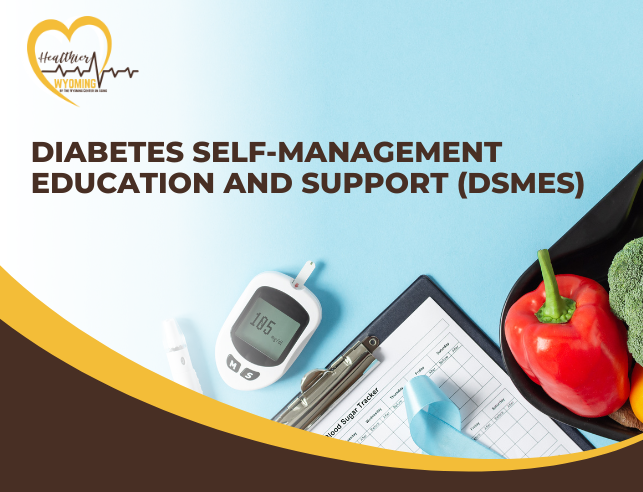DSMES is an Evidenced-based Intervention!
Refer to a Diabetes Care and Education Specialist
To qualify for DSMES, an individual must have documentation of being diagnosed with
diabetes and a written referral by the provider who is treating them for their diabetes.
Diagnosis criteria must meet either a fasting blood glucose ≥126 mg/dl on two separate
occasions, a 2-hour post-glucose challenge of ≥200 mg/dl on two separate occasions,
or a random glucose test of >200 mg/dl with symptoms of unmanaged diabetes.
Providers should ensure the individual understands their diagnosis, next steps and
make sure they can access the DSMES program. Insurance coverage status for DSMES should
be verified to ensure a smooth transition into the service.
When referring, it is critical that people with diabetes take advantage of DSMES services
at diagnosis to build a strong foundation of healthy habits and reduce the risk of
dangerous hypoglycemic events. Additionally, Medicare and many private insurers cover
10 hours of DSMES services in the first year after diagnosis [2]. Access step-by-step
instructions on how to refer including referral forms and background information at
the link below:
Studies show diabetes self-management education and support (DSMES) reduces diabetes-related complications
and encourages better management of the disease. Diabetes care and education specialists
work with their clients to create individualized care plans that focus on the whole
health of an individual, considering factors like culture, language, lifestyle and
socio-economic status. But that can only happen if the primary care provider takes
the initial step to refer the individual to an accredited DSMES program. For additional
information visit the CDC’s DSMES Toolkit.
To qualify for DSMES services
an individual must have the following:
-Documentation of diagnosis of type 1, type 2 or gestational diabetes
-Under Medicare and many commercial payers’ diagnosis must be made using the following criteria: Fasting Blood glucose of 126 mg/dL on two separate occasions. 2-Hour ----Post-Glucose Challenge of ≥200 mg/dL on two separate occasions. Random Glucose Test of >200 mg/dL with symptoms of unmanaged diabetes
-A written referral (see sample forms below) from the treating physician or qualified non-physician practitioner (including nurse practitioner, physician assistant, clinical nurse -Specialist or advanced nurse practitioner). A new referral is required for follow up visits after one year.
ADCES, the Association of Diabetes Care & Education Specialists and the Academy of Nutrition and Dietetics issued joint guidance on when DSMES is most critical and a referral is needed for optimal outcomes. These include:
1. At Diagnosis
2. During an annual assessment
3. When a person with diabetes faces new complicating factors
4. When there is a transition in care
Medicare covers up to 10 hours of DSMES (referred to as diabetes self-management training - DSMT - within Medicare) as a once-in-a-lifetime benefit that must be used within 12 consecutive months once started. Each subsequent calendar year, Medicare covers up to 2 hours of DSMT with a new referral. Most commercial insurers follow Medicare, but its best to have each person check with their insurer to verify coverage. DSMT programs may be able to assist participants with this.
ADCES has created sample referral forms that can be downloaded. If using an EMR, it is particularly helpful to have the
referral order built in and easily accessible. Diabetes Services Order Form(PDF), designed to make it easy for physicians to refer for DSMT and MNT in one quick step,
and Background Information on the Diabetes Services Order Form(PDF), which provides a summary of DSMT and MNT benefit requirements, as well as examples
of how they can be coordinated for qualifying Medicare beneficiaries.
Knowing the progress of a patient is key to their continued care. The National Standards for Diabetes Self-Management Education and Support require DSMES programs to communicate the education provided and participant outcomes to the referring provider, so they will have an idea of progress after the referral. Contact the DSMES program for reporting procedures.
Statistics
Toolkits and Resources
The DSMES Toolkit is a comprehensive resource for achieving success in Diabetes Self- Management Education and Support (DSMES).
Use this Impact Toolkit to project the health and economic effects of the National DPP lifestyle change program on your population at risk for diabetes.
Find more about Accreditation & Recognition Process
To find out more information about the accreditation process. Accreditation and recognition processes help ensure that DSMES services offer quality education.
New DSME Recognition Standards
JOIN THE WYCOA EMAIL LISTSERVE for the latest WyCOA information, events and updates!



